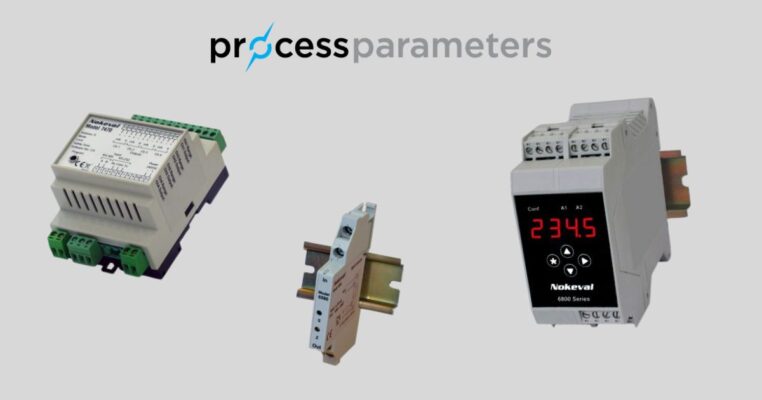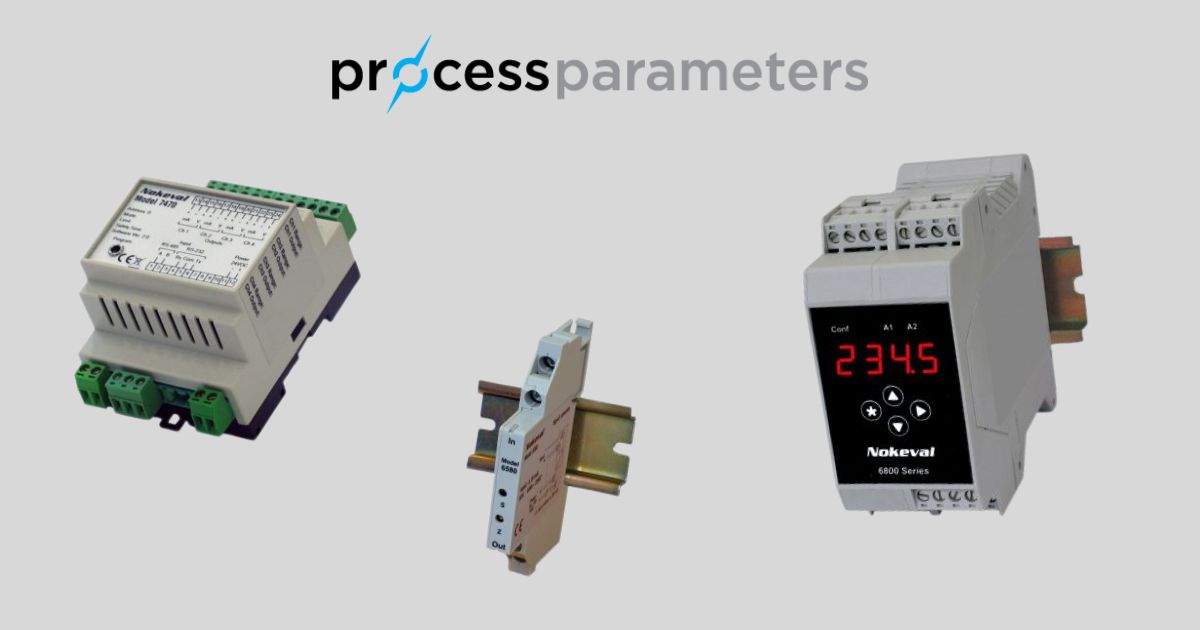What is a Signal Conditioner? An Overview of its Function and Importance
What is Signal Conditioning?
A signal conditioner is a vital component for industries seeking precision and reliability in their data acquisition systems.
In simple terms, it acts as a translator, refining raw signals from sensors into a form that can be easily interpreted by measurement devices. Picture it as a conductor orchestrating harmony in a symphony of data.
Whether you’re dealing with temperature sensors, strain gauges, or any other transducer, a signal conditioner ensures that the information they provide is accurate and consistent.
In this article, we’ll discuss:
- What a signal conditioner is
- How signal conditioners work
- Types and features
- Benefits for industrial applications
- Applications and uses
So, let’s dive in.
What is a Signal Conditioner?
A signal conditioner is an electronic device that modifies and enhances an input signal to produce a desired output signal.
It is commonly used in industrial applications to convert various types of signals such as temperature, pressure, and flow into standardised signals that can be easily processed by control systems.
Signal conditioners can be used to amplify, filter, isolate, linearise, and convert signals from one form to another.
Designed to improve the accuracy, reliability, and stability of the signal, they can also protect the equipment from electrical noise, interference, and damage.
Signal conditioners can be standalone devices or integrated into larger systems. They are available in a range of sizes, shapes, and configurations to suit different applications.
At Process Parameters, we offer a selection of signal conditioners for a wide variety of industrial applications.
Browse our online catalogue of signal conditioners, or get in touch with our team to get a product matched for your specific requirements.
Our Nokeval Products
Our Nokeval Products
Our Nokeval Products
Our Nokeval Products
How do Signal Conditioners Work?
The process of signal conditioning involves using a signal conditioner instrument to acquire data. This instrument converts an input signal, which can be either electrical or mechanical, into an output signal of a different type.
Its main objective is to amplify and transform the input into a format that is compatible and easy to interpret for data acquisition or machine control.
By doing so, a signal conditioner ensures that precise measurements are obtained. This is crucial for accurate data acquisition and machine control. Additionally, these instruments are capable of performing various other functions.
Key Features and Types of Signal Conditioning
Signal conditioners can be categorised based on their distinct functions and the signals they process.
Amplification
In many instances, the signals generated by sensors are weak and require a boost before they can be effectively utilised.
Signal conditioners feature amplification circuits that enhance these weak signals without compromising accuracy.
Filtering
Signal conditioners can filter out unwanted noise and interference from the signal.
Filtering can be achieved through various types of filters, such as:
- Low-pass filters
- High-pass filters
- Hand-pass filters
- Notch filters
The type of filter used depends on the application and the type of noise or interference that needs to be filtered out.
Converters
Converters are employed to convert signals from one form to another.
Analogue-to-digital converters (ADCs) transform analogue signals into digital form. Whereas digital-to-analogue converters (DACs) convert digital signals into analogue form.
Linearisation
Linearisers are signal conditioners that address nonlinearities in input signals. They employ mathematical algorithms or lookup tables to linearise the output.
This delivers a more linear response across the measurement range.
Electrical Isolation
Isolation amplifiers provide electrical isolation between a system’s input and output sides.
This safeguards sensitive measurement equipment from electrical noise, voltage spikes, and ground loops. In turn, this ensures precise and reliable measurements.

Benefits of Signal Conditioners in Industrial Applications
Now that we’ve discussed the essence of signal conditioners, let’s explore the benefits they bring to industrial applications.
1. Precision and Accuracy
Signal conditioners serve as the guardians of precision in industrial processes. By eliminating noise, amplifying weak signals, and ensuring the integrity of data, these devices contribute to the accuracy of measurements.
In sectors where even a minor deviation can have profound implications, such as pharmaceutical manufacturing or semiconductor production, the precision offered by signal conditioners is non-negotiable.
2. Enhanced Signal Integrity
In the cacophony of industrial environments, maintaining signal integrity is a challenge. Signal conditioners act as sentinels, safeguarding the signals from external disturbances.
This enhanced signal integrity is particularly crucial in applications where reliability is paramount, such as in aerospace or critical infrastructure monitoring.
3. Improved Process Control
Imagine a manufacturing floor where the consistency and quality of the end product hinge on precise control of various parameters.
Signal conditioners empower process control systems by providing a clean and accurate stream of data.
Whether it’s monitoring temperature fluctuations in a chemical reactor or ensuring the alignment of robotic arms in an assembly line, signal conditioners contribute to the optimisation of processes.
4. Flexibility in Signal Processing
Signal conditioners offer a level of flexibility in signal processing that is invaluable in today’s dynamic industrial landscape.
They can adapt to a variety of sensors and signal types, making them versatile companions in diverse applications.
This adaptability is particularly beneficial as industries evolve, adopt new technologies, and diversify their instrumentation.
5. Cost-Effective Solutions
Investing in signal conditioners is a strategic move toward cost-effectiveness. By ensuring the accuracy and reliability of measurements, these devices contribute to minimising errors and inefficiencies.
This, in turn, reduces the likelihood of costly downtime, rework, or suboptimal production outcomes.
6. Seamless Integration with Existing Systems
Signal conditioners are designed to seamlessly integrate with a variety of data acquisition systems and industrial protocols.
This compatibility ensures that incorporating these devices into existing setups is a smooth and efficient process, minimising disruptions to ongoing operations.
7. Compliance with Industry Standards
In regulated industries such as pharmaceuticals, food processing, or energy, adherence to stringent standards is non-negotiable.
Signal conditioners, engineered with precision and reliability in mind, contribute to compliance with industry standards, providing peace of mind in environments where quality control and regulatory requirements are paramount.
Applications and Uses of Signal Conditioners
Signal conditioners find applications in various industries, such as:
- Industrial automation
- Process control
- Data acquisition systems
- Scientific research
- Other fields requiring accurate and reliable signal processing
In these domains, signal conditioners play a pivotal role in optimising signal quality, minimising noise, and enhancing the overall performance of measurement and control systems.
Signal Conditioners From Process Parameters
Signal conditioners are essential components in many industrial applications that require precise and reliable signal processing.
They play a critical role in ensuring that the signals generated by sensors and other devices are converted into a form that can be easily interpreted by control systems, and can also protect the equipment from electrical noise and interference.
Browse our selection of signal conditioners for various applications and industries. Our signal conditioner range is designed to amplify, filter, isolate, and convert signals from various sensors and transducers.
Unsure which signal conditioner is best for your application? Contact our expert team for more information, or a free quote.
Send us an email at sales@processparameters.co.uk, call 01628 778788, or complete our online enquiry form.
Get a QuoteOur Nokeval Products
Our Nokeval Products
Our Nokeval Products
Our Nokeval Products
Frequently Asked Questions
What is a signal conditioner used for?
A signal conditioner is used to convert one type of electrical or mechanical signal into another. Its main purpose is to amplify and modify the signal to a compatible form for data acquisition or machine control, ensuring precise measurements and performing various other functions.
What is the difference between signal conditioner and transducer?
A signal conditioner is used to modify and amplify signals, ensuring compatibility for data acquisition or machine control. In contrast, a transducer is a device that converts one form of energy into another, such as converting physical quantities into electrical signals.
What is a universal signal conditioner?
A universal signal conditioner is a versatile device capable of handling a wide range of input signals, making it suitable for diverse applications. It provides flexibility and convenience by accommodating various signal types and simplifying the signal conditioning process.
What types of devices are commonly used for signal conditioning?
There are various types of devices that are commonly used for signal conditioning, including amplifiers, filters, converters, and isolators. These devices are designed to modify signals from sensors to make them suitable for processing by the equipment.
Other Knowledge Guides:
- What Is a Pressure Sensor?
- What is a Level Sensor?
- What is Pressure Measurement?
- What is a Data Logger?
- What Is A Temperature Sensor?
- What is a Thermowell?
- What is a Thermistor?
- What Is An Infrared Thermometer?
- What is a Pyrometer?
- What is a Temperature Transmitter?
- What is an RTD Sensor?
- A Guide to Industrial Sensors





